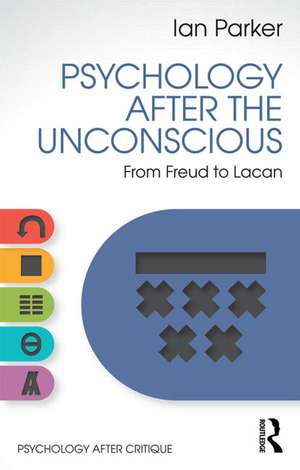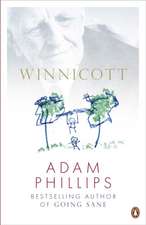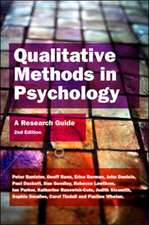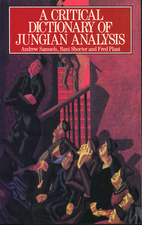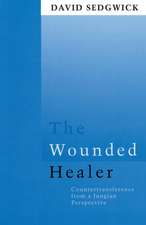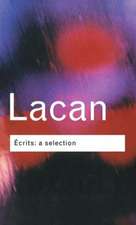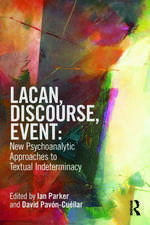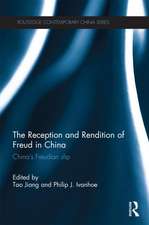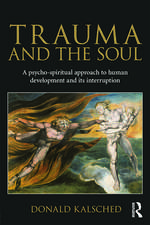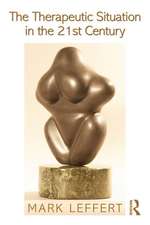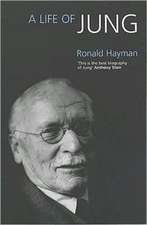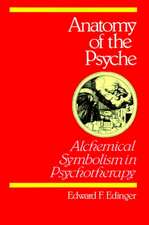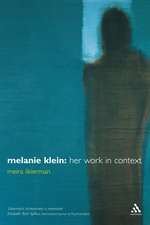Psychology After the Unconscious: From Freud to Lacan: Psychology After Critique
Autor Ian Parkeren Limba Engleză Paperback – 4 aug 2014
Psychology After the Unconscious is the fifth volume in the series and addresses three central questions:
- Why is Freud’s concept of the unconscious important today?
- Does language itself play a role in the creation of the unconscious?
- How does Lacan radicalize Freud’s notion of the unconscious in relation to cultural research?
Psychology After the Unconscious is essential reading for students and researchers in psychology, psychosocial studies, sociology, social anthropology and cultural studies, and to psychoanalysts of different traditions engaged in academic research. It will also introduce key ideas and debates within critical psychology to undergraduates and postgraduate students across the social sciences.
| Toate formatele și edițiile | Preț | Express |
|---|---|---|
| Paperback (1) | 241.89 lei 6-8 săpt. | |
| Taylor & Francis – 4 aug 2014 | 241.89 lei 6-8 săpt. | |
| Hardback (1) | 1157.34 lei 6-8 săpt. | |
| Taylor & Francis – 8 aug 2014 | 1157.34 lei 6-8 săpt. |
Preț: 241.89 lei
Preț vechi: 293.49 lei
-18% Nou
Puncte Express: 363
Preț estimativ în valută:
46.29€ • 50.43$ • 39.00£
46.29€ • 50.43$ • 39.00£
Carte tipărită la comandă
Livrare economică 24 aprilie-08 mai
Preluare comenzi: 021 569.72.76
Specificații
ISBN-13: 9781848722156
ISBN-10: 184872215X
Pagini: 140
Dimensiuni: 138 x 216 x 8 mm
Greutate: 0.18 kg
Ediția:1
Editura: Taylor & Francis
Colecția Routledge
Seria Psychology After Critique
Locul publicării:Oxford, United Kingdom
ISBN-10: 184872215X
Pagini: 140
Dimensiuni: 138 x 216 x 8 mm
Greutate: 0.18 kg
Ediția:1
Editura: Taylor & Francis
Colecția Routledge
Seria Psychology After Critique
Locul publicării:Oxford, United Kingdom
Public țintă
Postgraduate, Professional, and UndergraduateCuprins
Introduction: Psychology after the Unconscious Part I: Freud 1. Dimensions of the Unconscious in Freud 2. Rosalia H.: With Freud in a Prelude to Psychoanalysis 3. The Ego in Lucy R: Notes on Conflict in One of Freud’s First Cases 4. Katharina Working Out Anxiety: Notes on Freud’s Early Case 5. The Unconscious Love of Elisabeth Von R: Notes on Freud’s First Full-Length Analysis 6. The Psychogenesis of the Ego: Notes on Freud’s ‘Case of Homosexuality in a Woman’ Part II: Lacan 7. Lacan’s Formation of the Unconscious 8. Identification: Signifiers, Negation and the Unary Trait in Seminar IX 9. Seminar XXIII: Sinthome, Creativity, Culture and Pathology in Psychoanalysis
Notă biografică
Ian Parker was Co-Founder and is Co-Director (with Erica Burman) of the Discourse Unit. He is a member of the Asylum: Magazine for Democratic Psychiatry collective, and a practising psychoanalyst in Manchester. His research and writing intersects with psychoanalysis and critical theory. He is currently editing a book series Lines of the Symbolic (on Lacanian psychoanalysis in different cultural contexts) for Karnac Books. He edited the 2011 four-volume Routledge major work Critical Psychology, and is editing the series Concepts for Critical Psychology: Disciplinary Boundaries Re-Thought. His books on critical perspectives in psychology began with The Crisis in Modern Social Psychology, and How to End It (Routledge, 1989), and continued with Discourse Dynamics: Critical Analysis for Social and Individual Psychology (Routledge, 1992). His recent books include Qualitative Psychology: Introducing Radical Research (Open University Press, 2005) and Revolution in Psychology: Alienation to Emancipation (Pluto Press, 2007).
Recenzii
'This series is the comprehensive resource we have been waiting for to enable new generations of budding psychologists, and all those who concern themselves with how we might live, to find their way to a just appreciation of what it might be to understand the myriad ways a human being can be a person among persons.' – Rom Harré, Linacre College, University of Oxford, UK, and the Psychology Department, Georgetown University, USA
‘This volume of Ian Parker’s work is a treasure trove for researchers, not only in psychoanalysis and psychology, but in other disciplines such as philosophy and social, as well as cultural theory. With his knack for combining clarity and profound insight, Parker casts further light on both Freud and Lacan’s rich legacy, and ensures that even someone who is no stranger to psychoanalysis would be informed and enlightened.’ – Bert Olivier, Department of Philosophy, Nelson Mandela Metropolitan University, South Africa
'This book provides a refreshing reading of how Freud and Lacan conceptualize the unconscious. Ian Parker carefully examines original texts and discusses them through a critical lens, elucidating theoretical underpinnings of key psychoanalytic constructs. The author carefully explains what these important constructs imply for clinical practice.' – Stijn Vanheule, Department of Psychoanalysis and Clinical Consulting, Ghent University, Belgium
‘This volume of Ian Parker’s work is a treasure trove for researchers, not only in psychoanalysis and psychology, but in other disciplines such as philosophy and social, as well as cultural theory. With his knack for combining clarity and profound insight, Parker casts further light on both Freud and Lacan’s rich legacy, and ensures that even someone who is no stranger to psychoanalysis would be informed and enlightened.’ – Bert Olivier, Department of Philosophy, Nelson Mandela Metropolitan University, South Africa
'This book provides a refreshing reading of how Freud and Lacan conceptualize the unconscious. Ian Parker carefully examines original texts and discusses them through a critical lens, elucidating theoretical underpinnings of key psychoanalytic constructs. The author carefully explains what these important constructs imply for clinical practice.' – Stijn Vanheule, Department of Psychoanalysis and Clinical Consulting, Ghent University, Belgium
Descriere
This volume explores Freudian and Lacanian accounts of the unconscious and the debates surrounding them and examines their consequences for psychological and cultural research.
